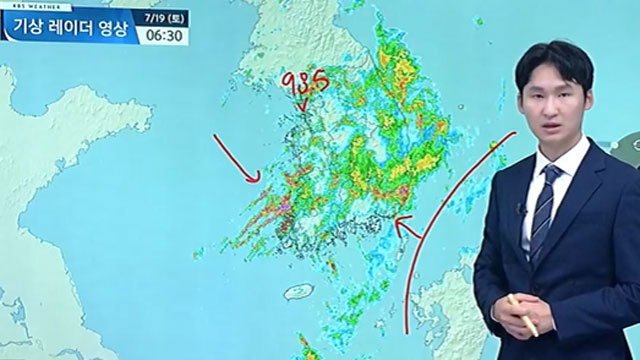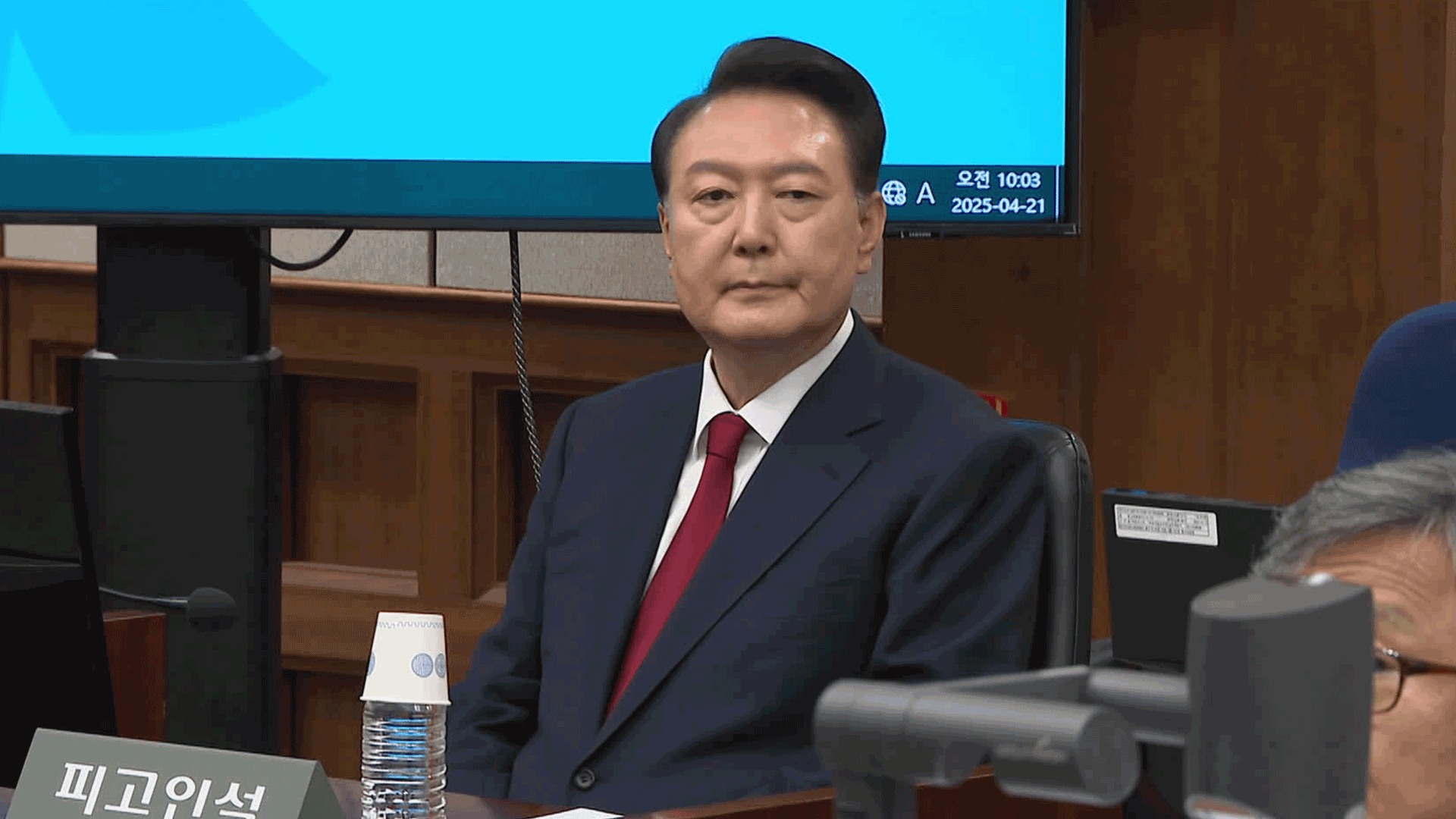U.S. enforces export controls on HBM chips to China
입력 2024.12.04 (01:49)
읽어주기 기능은 크롬기반의
브라우저에서만 사용하실 수 있습니다.
[Anchor]
Hello.
This is KBS 9 o'clock news.
The United States has expanded its export control list targeting China.
This time, the controls include high-bandwidth memory, HBM, which is a key component related to artificial intelligence, and advanced semiconductor manufacturing equipment.
Products made by South Korean companies will also be subject to these regulations.
First, we go to Washington, where Kim Ji-sook reports.
[Report]
High-bandwidth memory, HBM, has been added to the list of export controls targeting China by the United States.
HBM, which stacks DRAM vertically, is a key component necessary for AI development and is a measure to prevent China's technological advancement.
[Jake Sullivan/U.S. National Security Advisor/Nov. 13: "We think that they are not political issues, they are American issues that can serve all of the people of this country."]
In particular, the foreign direct product rules have been applied, meaning that even products made outside the U.S. will be subject to export controls if they utilize U.S. software, equipment, or technology.
Most advanced semiconductors, including HBM chips, are based on U.S. source technology.
SK Hynix and Samsung Electronics, which dominate the global HBM market, are also now under these regulations.
The U.S. has intensified its pressure on China by leveraging its superior technology.
Additionally, the U.S. announced export control measures on semiconductor manufacturing equipment and software necessary for China's advanced semiconductor production.
However, countries that operate export controls similar to the U.S. will not need separate permits.
This applies to 33 countries, including Japan and the Netherlands, but South Korea is not included.
Exports to China of some semiconductor equipment and components produced domestically may also be restricted.
As sanctions against China are expected to strengthen following the inauguration of President Trump, there are concerns about the negative impact on the South Korean economy, which is highly dependent on exports.
This is Kim Ji-sook from KBS News in Washington.
Hello.
This is KBS 9 o'clock news.
The United States has expanded its export control list targeting China.
This time, the controls include high-bandwidth memory, HBM, which is a key component related to artificial intelligence, and advanced semiconductor manufacturing equipment.
Products made by South Korean companies will also be subject to these regulations.
First, we go to Washington, where Kim Ji-sook reports.
[Report]
High-bandwidth memory, HBM, has been added to the list of export controls targeting China by the United States.
HBM, which stacks DRAM vertically, is a key component necessary for AI development and is a measure to prevent China's technological advancement.
[Jake Sullivan/U.S. National Security Advisor/Nov. 13: "We think that they are not political issues, they are American issues that can serve all of the people of this country."]
In particular, the foreign direct product rules have been applied, meaning that even products made outside the U.S. will be subject to export controls if they utilize U.S. software, equipment, or technology.
Most advanced semiconductors, including HBM chips, are based on U.S. source technology.
SK Hynix and Samsung Electronics, which dominate the global HBM market, are also now under these regulations.
The U.S. has intensified its pressure on China by leveraging its superior technology.
Additionally, the U.S. announced export control measures on semiconductor manufacturing equipment and software necessary for China's advanced semiconductor production.
However, countries that operate export controls similar to the U.S. will not need separate permits.
This applies to 33 countries, including Japan and the Netherlands, but South Korea is not included.
Exports to China of some semiconductor equipment and components produced domestically may also be restricted.
As sanctions against China are expected to strengthen following the inauguration of President Trump, there are concerns about the negative impact on the South Korean economy, which is highly dependent on exports.
This is Kim Ji-sook from KBS News in Washington.
■ 제보하기
▷ 카카오톡 : 'KBS제보' 검색, 채널 추가
▷ 전화 : 02-781-1234, 4444
▷ 이메일 : kbs1234@kbs.co.kr
▷ 유튜브, 네이버, 카카오에서도 KBS뉴스를 구독해주세요!
- U.S. enforces export controls on HBM chips to China
-
- 입력 2024-12-04 01:49:13

[Anchor]
Hello.
This is KBS 9 o'clock news.
The United States has expanded its export control list targeting China.
This time, the controls include high-bandwidth memory, HBM, which is a key component related to artificial intelligence, and advanced semiconductor manufacturing equipment.
Products made by South Korean companies will also be subject to these regulations.
First, we go to Washington, where Kim Ji-sook reports.
[Report]
High-bandwidth memory, HBM, has been added to the list of export controls targeting China by the United States.
HBM, which stacks DRAM vertically, is a key component necessary for AI development and is a measure to prevent China's technological advancement.
[Jake Sullivan/U.S. National Security Advisor/Nov. 13: "We think that they are not political issues, they are American issues that can serve all of the people of this country."]
In particular, the foreign direct product rules have been applied, meaning that even products made outside the U.S. will be subject to export controls if they utilize U.S. software, equipment, or technology.
Most advanced semiconductors, including HBM chips, are based on U.S. source technology.
SK Hynix and Samsung Electronics, which dominate the global HBM market, are also now under these regulations.
The U.S. has intensified its pressure on China by leveraging its superior technology.
Additionally, the U.S. announced export control measures on semiconductor manufacturing equipment and software necessary for China's advanced semiconductor production.
However, countries that operate export controls similar to the U.S. will not need separate permits.
This applies to 33 countries, including Japan and the Netherlands, but South Korea is not included.
Exports to China of some semiconductor equipment and components produced domestically may also be restricted.
As sanctions against China are expected to strengthen following the inauguration of President Trump, there are concerns about the negative impact on the South Korean economy, which is highly dependent on exports.
This is Kim Ji-sook from KBS News in Washington.
Hello.
This is KBS 9 o'clock news.
The United States has expanded its export control list targeting China.
This time, the controls include high-bandwidth memory, HBM, which is a key component related to artificial intelligence, and advanced semiconductor manufacturing equipment.
Products made by South Korean companies will also be subject to these regulations.
First, we go to Washington, where Kim Ji-sook reports.
[Report]
High-bandwidth memory, HBM, has been added to the list of export controls targeting China by the United States.
HBM, which stacks DRAM vertically, is a key component necessary for AI development and is a measure to prevent China's technological advancement.
[Jake Sullivan/U.S. National Security Advisor/Nov. 13: "We think that they are not political issues, they are American issues that can serve all of the people of this country."]
In particular, the foreign direct product rules have been applied, meaning that even products made outside the U.S. will be subject to export controls if they utilize U.S. software, equipment, or technology.
Most advanced semiconductors, including HBM chips, are based on U.S. source technology.
SK Hynix and Samsung Electronics, which dominate the global HBM market, are also now under these regulations.
The U.S. has intensified its pressure on China by leveraging its superior technology.
Additionally, the U.S. announced export control measures on semiconductor manufacturing equipment and software necessary for China's advanced semiconductor production.
However, countries that operate export controls similar to the U.S. will not need separate permits.
This applies to 33 countries, including Japan and the Netherlands, but South Korea is not included.
Exports to China of some semiconductor equipment and components produced domestically may also be restricted.
As sanctions against China are expected to strengthen following the inauguration of President Trump, there are concerns about the negative impact on the South Korean economy, which is highly dependent on exports.
This is Kim Ji-sook from KBS News in Washington.
-
-

김지숙 기자 jskim84@kbs.co.kr
김지숙 기자의 기사 모음
-
이 기사가 좋으셨다면
-
좋아요
0
-
응원해요
0
-
후속 원해요
0















이 기사에 대한 의견을 남겨주세요.